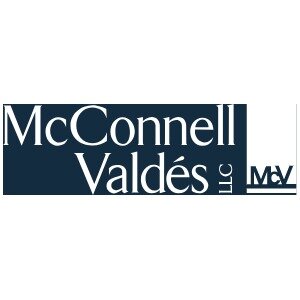Best Landlord & Tenant Lawyers in Puerto Rico
Share your needs with us, get contacted by law firms.
Free. Takes 2 min.
Free Guide to Hiring a Real Estate Lawyer
Or refine your search by selecting a city:
List of the best lawyers in Puerto Rico
About Landlord & Tenant Law in Puerto Rico
Landlord and tenant law in Puerto Rico is designed to govern the relationship between property owners and renters, with regulations that safeguard the rights and responsibilities of both parties. The legal framework aims to ensure fair rental practices, protect against unlawful evictions, and define the obligations each party owes to the other. The legal landscape in Puerto Rico is heavily influenced by both civil codes and case law, making it essential for landlords and tenants to understand their mutual rights and duties.
Why You May Need a Lawyer
Engaging a lawyer can be essential in a variety of situations involving landlord and tenant relationships. Legal assistance may be required for resolving disputes over lease terms, navigating eviction proceedings, or interpreting rights and responsibilities under a rental agreement. Tenants may seek counsel if they are facing unlawful rent increases or need to enforce repair obligations on landlords, while landlords might need legal help to address non-payment of rent or property damage issues. In complex cases or those involving significant financial or legal implications, professional legal advice can help ensure compliance with applicable laws and regulations, thereby minimizing risks.
Local Laws Overview
Landlord-tenant law in Puerto Rico is shaped by a combination of the Civil Code, local ordinances, and specific statutes. Key aspects include:
- Lease Agreements: Must be clear, written, and understood by all parties involved.
- Rent Control and Increases: Laws cap increases and provide processes for requesting increases.
- Habitability: Landlords must maintain safe and habitable conditions.
- Evictions: Procedural laws prevent unauthorized evictions, requiring court intervention.
- Security Deposits: Regulations on the collection, holding, and refunding of deposits.
- Repairs and Maintenance: Obligations for routine repairs and emergency situations.
Frequently Asked Questions
What rights do tenants have in Puerto Rico?
Tenants have the right to a habitable environment, due process in eviction, and protection from discrimination. They must also receive a clear lease agreement specifying rent and responsibilities.
Can a landlord enter a rental property without permission?
Landlords typically must provide notice and obtain consent unless there's an emergency requiring immediate access.
What is the process for eviction in Puerto Rico?
Evictions must go through the court system, where the landlord must demonstrate just cause and follow procedural requirements to obtain an eviction order.
Are verbal lease agreements enforceable?
While verbal agreements may be recognized, written agreements are strongly encouraged to minimize disputes and provide clear documentation of the terms.
How much can a landlord charge for a security deposit?
The amount is typically one month’s rent, but may vary. Landlords must comply with local regulations regarding the use and return of deposits.
Can tenants withhold rent for unmade repairs?
Tenants must generally continue to pay rent; however, they may be able to seek legal remedies for unaddressed repairs, including negotiating reduced rent or taking legal action.
What are the penalties for unjust eviction?
Penalties can include monetary damages to the tenant and potential legal costs incurred by the landlord if they fail to follow due process.
How are rent increases regulated?
Rent increases must comply with any local ordinances or the lease agreement, commonly requiring notice and justification.
Are pets allowed in rental properties?
Pet policies are generally detailed in lease agreements, allowing landlords to establish rules or exclude pets, except for service animals, which are protected under disability laws.
What steps should be taken if there's a dispute over property damage?
Document the issue, communicate concerns in writing, and attempt resolution informally before considering legal action or mediation.
Additional Resources
For further information, individuals can consult the following resources:
- Consumer Affairs of Puerto Rico - Provides guidance and assistance to tenants and landlords.
- Puerto Rico Legal Services - Offers legal services for qualifying individuals.
- Puerto Rico Department of Housing - Resources for tenants, landlords, and homeowners.
- Local legal aid clinics - Providing free or reduced-cost services for eligible residents.
Next Steps
If you find yourself in need of legal assistance in a landlord-tenant matter in Puerto Rico, consider the following steps:
- Gather Documentation: Collect any relevant leases, notices, correspondence, and evidence related to your issue.
- Consult with a Lawyer: Seek an attorney experienced in landlord-tenant law to discuss your situation and ensure your actions comply with the law.
- Explore Mediation: Consider mediation or alternative dispute resolution methods for resolving conflicts without court intervention.
- Contact Local Authorities: Engage with local housing authorities or consumer protection agencies for guidance and support.
Lawzana helps you find the best lawyers and law firms in Puerto Rico through a curated and pre-screened list of qualified legal professionals. Our platform offers rankings and detailed profiles of attorneys and law firms, allowing you to compare based on practice areas, including Landlord & Tenant, experience, and client feedback.
Each profile includes a description of the firm's areas of practice, client reviews, team members and partners, year of establishment, spoken languages, office locations, contact information, social media presence, and any published articles or resources. Most firms on our platform speak English and are experienced in both local and international legal matters.
Get a quote from top-rated law firms in Puerto Rico — quickly, securely, and without unnecessary hassle.
Disclaimer:
The information provided on this page is for general informational purposes only and does not constitute legal advice. While we strive to ensure the accuracy and relevance of the content, legal information may change over time, and interpretations of the law can vary. You should always consult with a qualified legal professional for advice specific to your situation.
We disclaim all liability for actions taken or not taken based on the content of this page. If you believe any information is incorrect or outdated, please contact us, and we will review and update it where appropriate.
Browse landlord & tenant law firms by city in Puerto Rico
Refine your search by selecting a city.









